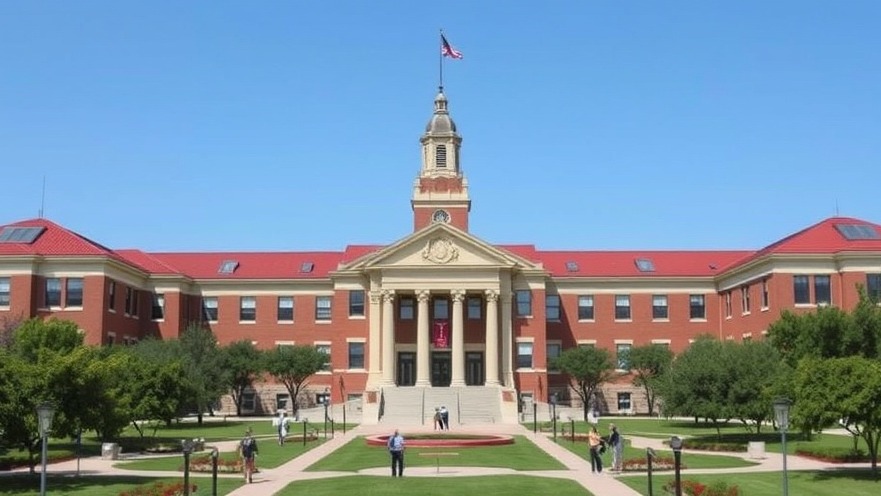
Brandon Creighton: A Shifting Landscape for Texas Higher Education
As Texas Tech University approaches a significant juncture in its leadership, State Senator Brandon Creighton is expected to be named the sole finalist for the chancellor position. This anticipated appointment represents a pivotal moment not only for Creighton, but for the Texas higher education landscape as a whole. Having authored key legislation aimed at reshaping the governance of universities, Creighton's potential ascendancy raises questions about the future direction of Texas' academic institutions.
Major Legislation and Its Impact on Higher Education
In recent years, Creighton has championed several legislative measures that have sparked considerable debate within educational circles. Notably, Senate Bill 17, which prohibits diversity, equity, and inclusion (DEI) offices at public universities, signifies a drastic change that critics argue may undermine the principles of inclusive education. Furthermore, Senate Bill 37 shifts significant authority from university faculty and administrators to politically appointed regents, suggesting a move towards greater state oversight of higher education. As these reforms continue to roll out, the balance of power traditionally held by universities is being recalibrated, possibly threatening academic freedom—a concern echoed by the Texas Conference of American Association of University Professors.
Shared Governance and Academic Freedom at Stake?
The implications of Creighton’s legislation extend beyond policy; they challenge the foundational principles of shared governance within academic institutions. “Shared governance involves the trustees, the administration, and the faculty all working together to support the students and institution,” stated a representative from the academic association. As Creighton prepares to take the helm at Texas Tech, the future of this collaborative model remains uncertain—a situation that has educators and students alike anxious about the implications for academic freedom and institutional autonomy.
Reactions from the Texas Tech Community
The Texas Tech Board of Regents has expressed strong support for Creighton’s potential appointment, highlighting his commitment to advancing the university's mission. Board Chair Cody Campbell underscored this sentiment, stating that Creighton aligns with the values and vision of the Texas Tech community. Meanwhile, numerous state lawmakers, including House Speaker Dustin Burrows, have congratulated him, anticipating that his leadership will significantly benefit Texas Tech.
Future Challenges and Opportunities Ahead
Looking forward, Texas Tech stands at a critical crossroads with Creighton's expected appointment. As higher education institutions nationwide wrestle with pressing issues like academic autonomy, free speech, and diversity, the path Creighton chooses could set a precedent that influences Texas colleges for years to come. The confluence of growth and governance presents both challenges and opportunities, particularly as Texas' economy continues to evolve and expand.
What This Means for Students and Faculty
For current and prospective students at Texas Tech, Creighton's ascension to chancellor may signal a shift towards policies that prioritize governance driven by political agendas rather than academic integrity and inclusivity. As the university navigates these changes, students may have to adapt to a more regulated environment. Faculty members, on the other hand, may find their roles increasingly constrained, raising questions about morale and the recruitment of top talent.
A Call for Continued Dialogue
The discourse surrounding Creighton's anticipated leadership position emphasizes the need for ongoing dialogue between university stakeholders, including students, faculty, and the political leaders shaping higher education policy. As these narratives unfold, the Texas education community must remain vigilant in advocating for a balanced approach that honors both governance and academic freedom.
Conclusion: A Contemplative Path Forward
Brandon Creighton’s expected role as chancellor marks a significant shift in the diorama of Texas higher education. As stakeholders in this ongoing narrative, it is essential to engage in constructive conversations that promote a healthy academic environment while navigating the complexities of governance and policy. The future of Texas Tech and potentially the state's broader educational framework depends on the choices made in this transitional phase, and all voices deserve to be heard.
 Add Element
Add Element  Add Row
Add Row 



Write A Comment